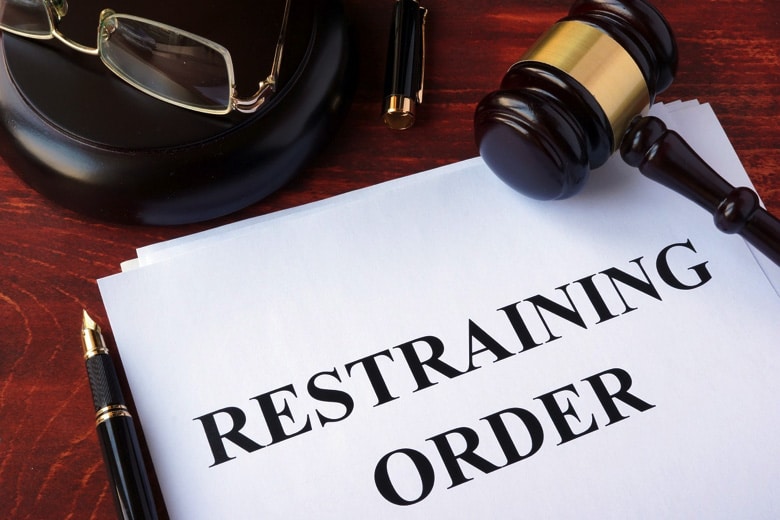If you or someone you know has been abused, physically, mentally or emotionally, you may file for a restraining order to protect yourself (and others) from your abuser. Domestic Violence Restraining Orders are appropriate if there is a close relationship between the parties involved. This usually means the people involved are married, domestic partners, dating, cohabitants and certain other relations.
A restraining order is a court order which prevents another person from stalking, harassing, sexually assaulting or threatening you with violence. In order to obtain a restraining order, you will have to fill out paperwork and submit it to the court. A restraining order will help prevent a person the court has ordered to be restrained from contacting you, others who live with you, as well as other parties named on the protective order. Domestic Violence does not just mean abuse such as a physical or sexual assault. It can also include behavior like harassing, stalking, threatening, and disturbing someone’s peace.
To file a restraining order, papers have to be filed with the court clerk. The clerk will give all of your forms to the judge, and sometimes you will be asked to appear in court (depending on the jurisdiction). Either way, the judge will review your paperwork and usually make a decision that day – either granting or denying your request for a temporary order. An evidentiary hearing is then also set for about 21 days later for the court to decide whether or not to grant a longer-term restraining order, usually lasting for 1-3 years.
Because of the formalities required in obtaining a permanent restraining order, it is usually best to check with an experienced family law attorney to ensure that you are protected.
Authored by IRWIN & IRWIN.
IRWIN & IRWIN Family Law is located in Fullerton, California. We provide a full suite of family law services from divorce litigation, divorce mediation, child custody issues, domestic violence restraining orders and representing minors in court. “Every situation is different, and some come with very complex financial issues. Our legal team is here to support you during a very troubling time and prepare you for court, or to at least help negotiate or mediate the issues out to establish an equitable legal resolution,” says Kelly Irwin, Senior Litigator at the firm.




